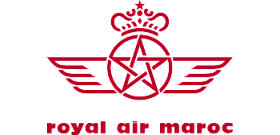 Royal Air Maroc’s Bold Network Expansion Boosts Morocco-Europe Connectivity and Fleet Modernization
Royal Air Maroc’s Bold Network Expansion Boosts Morocco-Europe Connectivity and Fleet Modernization
Royal Air Maroc (RAM) is gearing up for a major network expansion starting September and October 2025, signaling a strategic push to strengthen Morocco’s air links with Europe and Africa. Central to this growth is the reinstatement of four key routes between Marrakech and prominent French cities, alongside the launch of new international services from Casablanca and a significant upgrade to its medium-haul fleet.
From October 2025, RAM will resume twice-weekly flights connecting Marrakech with Bordeaux, Lyon, Nantes, and Toulouse. These routes, previously suspended—with Nantes last served in 2017 and the others in 2022—will be operated using the reliable Boeing 737-800 aircraft. This move is a clear response to the enduring importance of France as Morocco’s largest European market, which accounted for 27.5% of the country’s international arrivals over the past year. By restoring these connections, RAM aims to tap into the robust demand from French travelers and reinforce Morocco’s position as a top destination for European tourists.
In addition to route reinstatements, RAM is increasing flight frequencies on select Marrakech routes to better serve seasonal and year-round demand. Notably, flights between Marrakech and Marseille will rise from two to three weekly services starting October 27, utilizing a mix of Boeing 737-800s and Embraer E190s. Meanwhile, the Marrakech–Paris Charles de Gaulle route will see a substantial seasonal boost, with weekly flights increasing from three to seven between mid-December 2025 and mid-January 2026, catering to peak holiday travel.
RAM’s expansion is not limited to Morocco’s southern gateway. The Casablanca hub will welcome four new international destinations, enhancing the airline’s footprint across Europe and Africa. Starting September 17, twice-weekly flights will connect Casablanca with Zurich, Switzerland, and Ndjamena, Chad. The Ndjamena service is strategically timed with late-night departures and early-morning returns to facilitate onward connections, a boon for business and regional travelers. The following day, September 18, RAM will launch twice-weekly night flights to Sal Island, Cape Verde, designed to optimize connections for leisure travelers. Then, on October 20, the airline will add Munich, Germany, to its network with twice-weekly flights, further strengthening Morocco’s ties with key European economic centers.
Supporting this ambitious network growth is RAM’s ongoing fleet modernization, particularly its focus on the Boeing 737 MAX 8. Since late May, the airline has taken delivery of three brand-new MAX 8 aircraft directly from Boeing. Complementing these are two second-hand MAX 8s acquired through leasing arrangements with DAE Capital, one arriving in June and another in late July, both previously operated by Ajet. This brings RAM’s total 737 MAX 8 fleet to seven, with one more aircraft expected from the airline’s original order. The 737 MAX 8’s enhanced fuel efficiency, extended range, and passenger comfort make it an ideal choice for RAM’s medium-haul routes, enabling cost-effective operations and improved service quality.
Despite the influx of newer aircraft, RAM continues to rely heavily on its fleet of 28 Boeing 737-800s, which remain the backbone for many European and regional flights. This balanced fleet strategy allows RAM to maintain flexibility and capacity while gradually transitioning to more modern, environmentally friendly aircraft.
This expansion aligns with Morocco’s broader aviation and tourism ambitions. The country is investing heavily in airport infrastructure upgrades under its Airports 2030 plan, aiming to double passenger capacity and position Casablanca as a premier African aviation hub. The reinstated French routes and new European and African destinations will play a crucial role in supporting Morocco’s goal to attract 26 million tourists annually by 2030, with France continuing as a vital source market.
For African travel professionals, RAM’s network growth offers fresh opportunities to package and promote Morocco as a gateway to Europe and beyond. The enhanced connectivity, combined with fleet modernization, promises more reliable schedules, better passenger experiences, and competitive pricing. As Morocco prepares to co-host major global events like the 2030 FIFA World Cup, these developments position RAM—and the country’s tourism sector—for sustained growth and increased international appeal.
